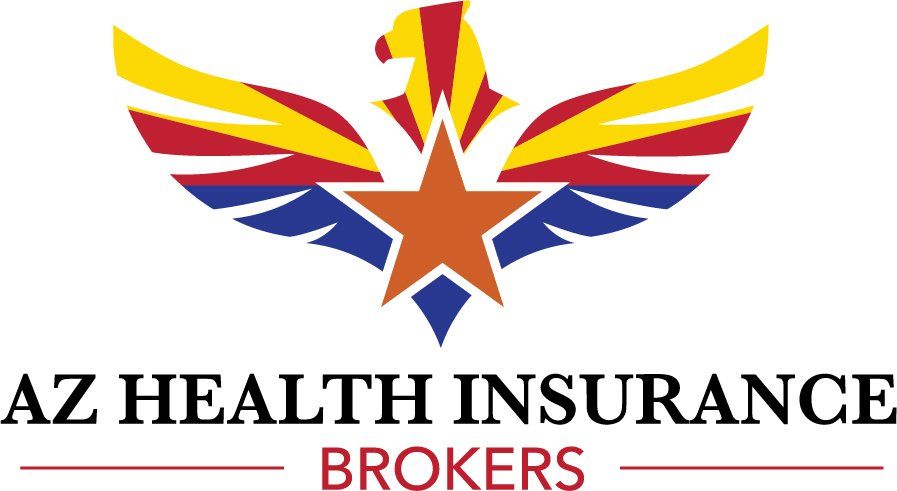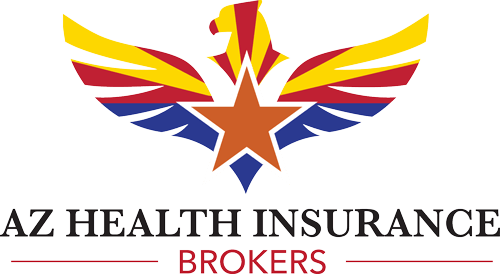What Is Self Funded Insurance for Businesses?
If you want to offer healthcare coverage to your employees, you have several options for group health insurance plans to provide. In addition to traditional fully funded healthcare plans, where you pay a set premium to a health insurance provider in exchange for a specific coverage level, there are also self-funded plans that could provide more flexibility and lower costs.
Healthcare coverage in any type of plan is a vital benefit for today’s workforce. An August 2024 survey of 1,000 job seekers by Resume Genius found comprehensive health insurance was the second-most sought-after benefit, second to only higher than average salary. Strong health insurance offerings can help your business stand out to recruit top talent and retain your workforce.
As you consider your options, learn about how self-funded healthcare plans work and why they might be a good fit for your business. Contact our Arizona health insurance brokers team if you need help navigating all your options.
Key Takeaways
- Self funded health insurance plans allow the employer to control the entire dollar amount of their healthcare spending.
- Generally speaking, this type of health insurance plan is a good fit for larger companies with 500 or more employees. However, with increasing costs of insurance, this product will likely, over time, become more and more popular in the market.
- In most cases, self funded plans are actually “partially” self funded, since the majority of employers who use a self-funding model have stop-loss insurance in the background to protect them against the costs of a single large claim or a series of small claims.

Self Funded Group Health Insurance: How It Works
Self funded insurance for businesses, otherwise known as self insurance, is a funding strategy that allows employers to capture some of the profits from their healthcare plan. With a self funded plan, the employer takes on most or all of the benefit claims expenses. The company or a third party administrator (TPA) manages payments, additionally the employer is responsible for paying the claim amounts.
With a self funded insurance plan, an employer has the potential to:
- Customize healthcare coverage to meet their unique business needs
- Save money compared to traditional, fully insured health plans, especially with relatively healthy workforces
- Gain more flexibility, since self funded plans may not be subject to specific state requirements
Many employers will be familiar with fully insured plans, where an employer pays an insurance premium that goes toward an insurance pool that pays claims across a group of employers. With self funded insurance, the employer pays for claims out-of-pocket, which could improve cash flow compared to a fully insured plan that requires a set payment each month.
The self insured employer will also typically pay administrative fees and for optional stop-loss insurance, which protects employers against large claims or a large number of small claims that cost beyond a certain threshold.
How Reinsurance Works With Self Funded Plans
The term “reinsurance” refers to insurance that insurance companies take out to protect themselves against large claims. In a self funded health plan, reinsurance takes the form of stop-loss insurance, which is the employer’s responsibility. An employer may choose to get stop-loss insurance for situations like the following.
- Individual “specific” deductible: Setting a stop-loss insurance amount for an individual “specific” deductible protects the employer against a single member’s large claim. For example, if an employee is diagnosed with a serious illness, and the specific deductible is $100,000, the employer’s maximum liability will be $100,000 for that claim.
- Aggregate deductible: Setting a stop-loss insurance amount for an aggregate deductible protects the employer against a variety of smaller claims. For example, if 100 employees visit the emergency room throughout the year, and the aggregate deductible is $1 million, the employer’s maximum risk for all claims is $1 million.
The lower the threshold is for reinsurance, the higher the stop-loss premium will be. For example, an employer that has a specific deductible of $25,000 will pay more in premiums compared to an employer that has a specific deductible of $100,000. However, paying more in premiums for a lower specific deductible may lower the financial risk for the employer.
When crafting a self funded plan strategy, there needs to be a balance between risk and forecasting that’s appropriate for clients, depending on their own unique circumstances. Partial self funding, which uses stop-loss insurance, can be more complex than other types of group insurance plans, which is why it’s important to work with Arizona health insurance brokers who understands client needs.
Self Funded Insurance Costs & Factors to Consider
Beyond reinsurance, there are other fixed costs associated with self-funded insurance. These include:
- Administrative fees: Self funded insurance plans typically require administrative fees, as an insurance expert will need to execute the plan between the insurance carrier and the employer. TPAs can be a good fit for self-funded health plan employers to ease some of the burden. They can both help customize the plan creation, as well as process claims for the employer as they come in.
- Consulting fees: Depending on who you talk to when creating your self funded plan, there may be consulting fees required in order to get advice and make the right selection. At AZ Health Insurance Brokers, we offer free consultations to businesses, so you can understand all your options and be confident in the plan selection.
- Possible network fees: There is a possibility that the health insurance carrier you choose will charge an insurance network fee. This isn’t the case for all plans, but it’s something to be aware of as you shop for self funded health plan carriers.
Also, related to stop-loss insurance/reinsurance, you risk level and funding decisions will impact your overall budget for self-funded health plans. Employers can decide to “fund to max” or fund to expected risk. A decision to fund to the max helps build a larger claims fund pool and reserves for later use. Funding to expected risk may mean an employer may owe more money periodically, but there may be potentially less of a financial burden.
To optimize your budget and save the most money, while ensuring your employees have the health coverage they need, it’s helpful to talk with an AZ health insurance broker for expert guidance.
Should Your Business Use Self Funded Insurance?
Self funded health plans are becoming more popular, as more businesses seek to gain control over the details of their group health insurance plans for their employees. Compared to a traditional fully funded plan, you can work with a TPA to design your plan and decide on the risk and financial responsibility you want to take on with your plan.
Like any health insurance plan for business, we encourage you to talk with a business health insurance expert at AZ Health Insurance Brokers to learn about all your group health insurance options. Our team can help you learn about offerings including health savings accounts (HSAs), health reimbursement arrangements (HRAs), individual coverage health reimbursement arrangements (ICHRAs), qualified small employer health reimbursement arrangements (QSEHRAs), dental insurance for businesses and various brands for business insurance, including UnitedHealthcare for employers.
For a free consultation, contact us online, call 602.617.4107 or email info@azhealthinsurancebrokers.com.
Self Funded Group Health Insurance FAQs
What is self funded health insurance for businesses?
Self funded health insurance for businesses is a health insurance plan where the employer assumes all financial responsibility for paying out employee health insurance claim benefits.
What’s the difference between self funded insurance and fully funded insurance?
With fully funded insurance, an employer pays a set monthly premium that covers all employee claims, but whose expenses may exceed the amount of coverage employees actually use. With a self funded plan, the employer takes on the financial risk and pays out claims as they’re made.
What is stop-loss insurance?
Stop-loss insurance is a type of reinsurance for employers that protects businesses against single large, catastrophic claims and against a high amount of small claims from multiple employees. Stop-loss insurance takes forms including individual specific deductibles and aggregate deductibles.
What are administrative fees in self funded insurance?
Administrative fees in self funded insurance are paid to the party that administers self funded plan execution and claims processing in a self funded insurance plan. A third-party administrator (TPA) can help employers who want to offer a self funded plan to employees.
Is self funded health insurance good for businesses?
Self funded health plans can be a good option for businesses that are willing to take on financial risk of employee health claims. They may require extra costs, such as administrative fees and the purchase of stop-loss insurance, but businesses can also save money with self funded plans and even get back excess funds at the end of the plan year.











